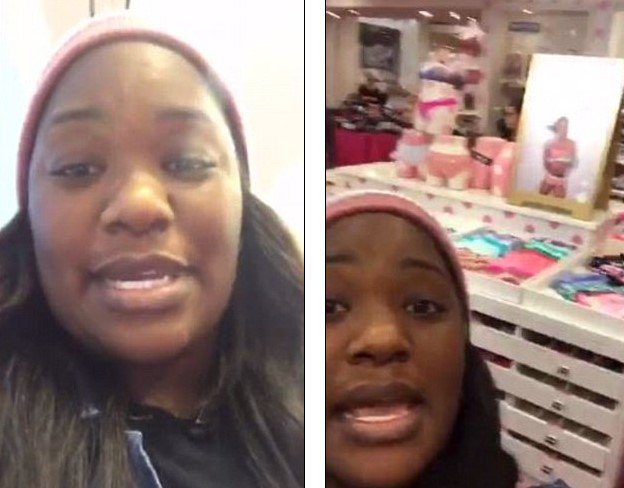Victoria’s Secret
Victoria’s Secret is an American lingerie, clothing, and beauty retailer known for high visibility marketing and branding, starting with a popular catalog and followed by an annual fashion show with supermodels dubbed Angels. As the largest retailer of lingerie in the United States, the brand has struggled since 2016 due to shifting consumer preferences and ongoing controversy surrounding corporate leadership's business practices.
Founded in 1977 by Roy and Gaye Raymond, the company's five lingerie stores were sold to Leslie Wexner in 1982. Wexner rapidly expanded into American shopping malls, growing the company into 350 stores nationally with sales of $1 billion by the early 1990s when Victoria's Secret became the largest lingerie retailer in the United States.
From 1995 through 2018, the Victoria's Secret Fashion Show was an essential part of the brand's image featuring an annual runway spectacle of models promoted by the company as fantasy Angels. The 1990s saw the company's further expansion throughout shopping malls along with the introduction of the miracle bra, the new brand Body by Victoria, and the development of a line of fragrances and cosmetics. In 2002 Victoria's Secret announced the launch of PINK, a brand that was aimed to appeal to teenagers.] Starting in 2008, Victoria's Secret expanded internationally, with retail outlets within international airports, franchises in major cities overseas, and in company-owned stores throughout Canada and the UK.
By 2016, Victoria's Secret market share began to decline, increasingly giving way to a growing consumer preference for athleisure. The company canceled the circulation of their famous catalog in 2016. The brand struggled to maintain its market position following ongoing criticism and controversy over the unsavory behavior and business practices of corporate leadership under Wexner and Ed Razek. As of May 2020, with over 1,070 stores, Victoria's Secret remained the largest lingerie retailer in the United States. Parent company L Brands announced the planned closure of 250 Victoria's Secret and Pink stores in 2020, a nearly 25 percent reduction of all retail locations, following the COVID-19 pandemic.[1]
The Controversy
2010 In 2010, Victoria’s Secret included a section that they named “Wild Things.” Models, including Emanuela De Paulo, wore animal-print lingerie, surrounded by men in printed sarongs and wrap skirts. All the models — male and female — were painted with black shapes, lines, and the like, meant to resemble the body art of indigenous people.[2]
In 2016, incident happened when a woman named Kimberly Houzah uploaded a video to Facebook says she and another black woman were told to leave the store by someone she thought was a manager because of one black woman caught shoplifted at the store in Alabama. In her video, Houzah says the incident started when a third African-American woman was allegedly accused of shoplifting on Wednesday at the store at the Quintard Mall in Oxford. The manager, Houzah says, then told her and a third black woman they needed to leave the store.
This video caused rage in society due to the racial stereotype
The Apology
"We take the experience of our customer at the Quintard Mall very seriously and have reached out to her directly to express our sincere apology," Victoria's Secret said on Facebook. "What happened at our store should not have happened and does not represent who we are or what we stand for. The store associate involved in this matter is no longer employed with the company. Victoria's Secret is adamant that all customers regardless of race be treated with dignity and respect at all times." CNN reached out to Victoria's Secret for clarification on how the employee separated from the company but didn't get a response.[3]
References
- ↑ Victoria’s Secret. Retrieved December 25, 2020.
- ↑ Matera, Avery. 5 Times Victoria’s Secret Was Accused of Cultural Appropriation, Teen Vogue, 7 November 2018. Retrieved December 25, 2020.
- ↑ Almasy, Steve. Victoria's Secret apologizes to customer who says she was racially profiled, cnn.com, 9 December 2016. Retrieved December 25, 2020.


